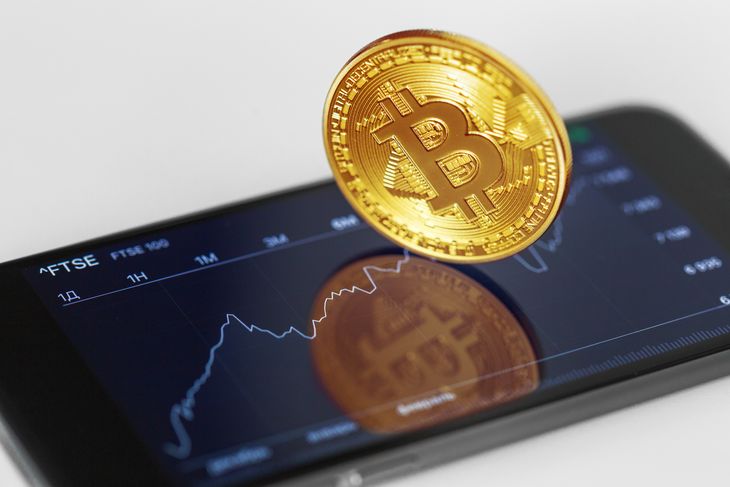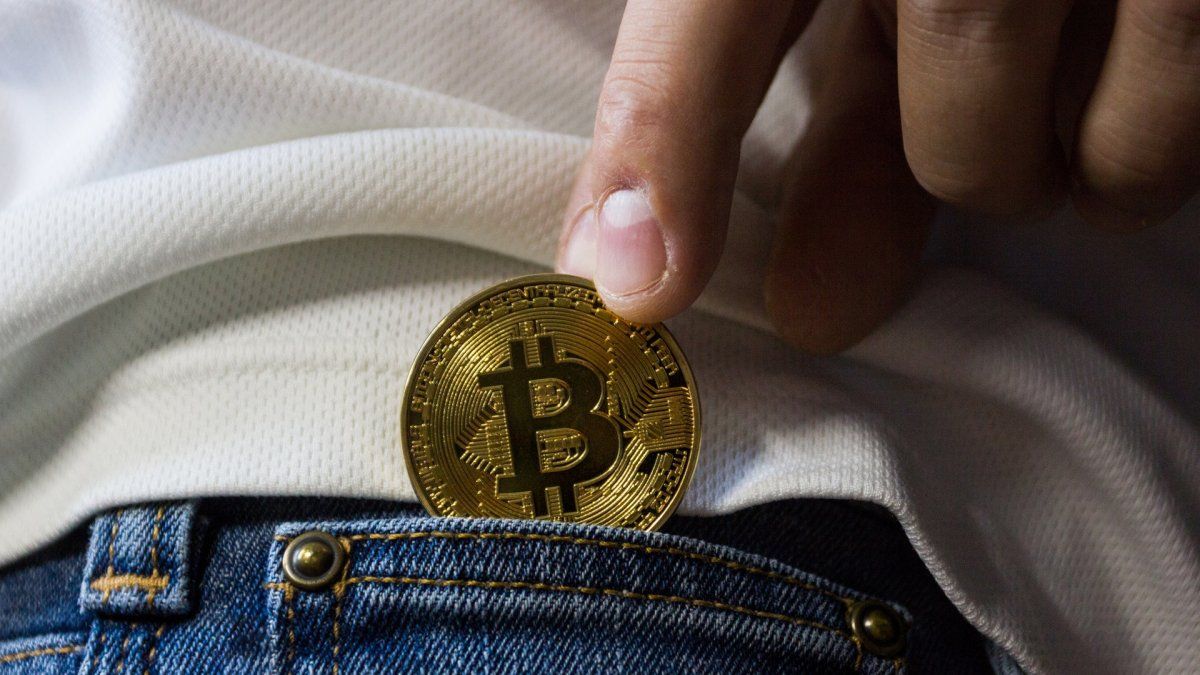Cryptocurrencies.webp
Cryptocurrencies, the industry that allows you to save and double profits with real alternatives.
Precisely that financial crisis of 2008 was seen by anarcho-capitalist and libertarian currents that draw on the so-called Austrian economic school as definitive proof of the exhaustion of the dirigiste model where the Statewhich through its central banks happily issues fiduciary currency without any support, generating more and more inflation, impoverishing and “Orwellian” controlling the population.
The criticism of these anarcho-capitalists of the “status quo” was not limited to state organizations, but also reached private centralized entities such as traditional financial entities.
In this framework in 2008, Satoshi Nakamoto creates Bitcoin, a decentralized digital asset based on blockchain technology. which is slowly becoming the flagship of a fantastic new constellation of (crypto) assets, with multiple layers and platforms, smart contracts and applications that revolutionize and enhance the digital world.
This new and dynamic ecosystem It expanded precisely thanks to the powerful blockchain technology, today already recognized and used effectively both by companies from various economic sectors and by some national or subnational states..
The positive scope of these platforms based on blockchains on which tokens (digital representations of various types of goods and assets) navigate were not limited to financial assets but also expanded to an infinite number of areas: health, education, productions. diverse artistic, digital identity, entertainment, to name just a few sectors.
The digital revolution of the last decade applied to the financial segment found States perplexed and slow when it came to understand and respond to these new demands. The new globalized world with the Internet as an operations platform and with great and sudden technological advances created fertile ground for thousands of private cryptoassets to flourish in recent years, and consequently hundreds of transnational markets (exchanges) and Millions of people will once again be hypnotized by products that in many cases are as difficult to understand as they are easy to buy.
The crypto system originally created by anarchocapitalists and libertarians believers in a decentralized world where financial freedom prevailed since transactions were carried out primarily between almost anonymous accounts without participation of financial entities was quickly and massively co-opted in all its dimensions by its hated centralized entities, especially the crypto markets (exchanges)..
Some, not all, of these platforms adopted the same sophisticated and criticized practices of the traditional financial world that the crypto world was supposed to improve. In some cases operations with complex derivative products, very high leverage, promises of returns without explaining the risks assumed, opacity regarding where these assets are kept, ignorance regarding which jurisdictions possible conflicts are settled, non-transparent price formations where they operate as money tables traditionalconstituted part of the crypto landscape during the last five years until today.
bitcoin-cryptocurrencies

freepik.es
Despite all this evidence or because of it, some actors in the crypto world instinctively clashed with regulators. Curiously, the ambivalent relationship between these two groups has a new and paradoxical chapter these days where the bitcoiners of the world They celebrate significant increases in the price of the crypto asset due to the expectation that their main archenemy, the United States Securities Commission (SEC), will approve a typical financial product of the traditional financial system called ETF. (Exchange Traded Funds) that is listed on regulated markets and has bitcoin as its underlying.
Leaving aside the enormous volatility of these products (which we Argentines have already naturalized by our history), the high number of natural design flaws in a complex, nascent and deregulated technological industry like crypto, as well as the appearance of unscrupulous As long as they exist everywhere, they caused hundreds of thousands of investors to lose their savings due to fraud, hacks and other scams for years. Only in 2022 cases such as Terra Luna, Celsius or FTX destroyed crypto wealth of investors for billions of dollars.
Likewise, some crypto platforms were designed with the objective of shielding anonymity that, intentionally or not, facilitated criminal activities outside the public radar.
To reject state intervention, and behind the word freedom Both Tyrians and Trojans gathered, mixing from the honest and convinced bitcoiners to the launderers of funds from drug trafficking, the illegal sale of weapons or human trafficking. The concept of freedom is too comprehensive, complex and relevant to trivialize it so that it is appropriated by a certain technological platform or a particular group..
The crypto ecosystem constitutes an undeniable multidimensional reality that is here to stay and expand. Regulation well understood It does not have to go against basic individual freedoms or against the creation and expansion of valuable and innovative new products, but in favor of protecting those who do not have the tools to adequately interpret the risks of these assets.
The discussion of how to regulate these new and complex assets and actors is not settled anywhere in the world and has a number of idiosyncratic, political, economic and social dimensions that far exceed this article.
In this context, Argentina seems to be moving towards a change of regime where we must all learn again how to conjugate the verb deregulate..
Recently government officials have explained that under the new regulatory framework contracts can be concluded in bitcoin and proposals appear such as that of the NGO Bitcoin pointing out the possibility of adding this crypto asset to the Central Bank’s reserves, initiatives that should be evaluated very carefully.
Likewise, the deregulatory drive applied to the financial system can, contradicting its objective of increasing competition, further enhance the relevant position of super applications (SuperAPPs) whose impacts could also be studied in advance.
In this sense, it is foreseeable that in a short period fintechs such as Mercado Pago, as well as some banks, will further massify this operation by beginning to offer their millions of clients these products that numerous Argentines already buy without knowing in much detail the risks involved. assuming.
These launches in the midst of a bullish economic cycle can further position Argentina as one of the countries with the highest degree of adoption of cryptoassets in the world. (currently according to the company Chainalysis we already occupy 15th place).
In terms of the regulatory structure, in our country the crypto and fintech universe provides further evidence that the current architecture is inefficient and needs to be redesigned. The financial market in the world and in Argentina is not the same as it was 30 years ago, it is currently super technological and has communicating vessels between all participants that makes the same actors operate simultaneously in payments, banking products, capital markets and recently also in crypto.
The segmented regulatory approach to the financial market is anachronistic. One response to this inefficiency could be thatThe National Securities Commission is integrated into the Superintendency of Financial Entities, not to regulate more but betterreducing public and private sector costs, eliminating duplication by adopting a comprehensive, risk-based and technologically trained view that allows these new products to be adequately promoted.
bitcoin-cryptocurrencies

freepik.es
Particularly the technological challenges are enormous, While we continue trying to digest the scope of WEB3, for example, the Central Bank of Brazil, following recommendations that come from Basel, is already analyzing the strong impact that the advances of quantum computing they will inevitably have in their financial system and in that of all countries including ours.
Argentina has an immense opportunity to position itself in the global crypto and fintech world in a rational way, with a technological and modern regulation that avoids extremes, summoning the enormous collective intelligence that we have. spread among numerous actors. Public and private universities; markets such as BYMA or ROFEX, various financial companies grouped in chambers such as the Fintech Chamber, ABAPPRA; ADEBA and ABA; Consumer and crypto sector NGOs such as the Bitcoin NGO, legal and tax studies specialized in these issues, and obviously as a base solvent career officials who already work in public organizations such as the National Securities Commission, the Central Bank, the UIF, the AFIP or the Consumer Defense Commission are some examples of the valuable raw materials we have and should not waste.
It is obvious that there are different views, particular and often conflicting interests, but our great challenge, for decades and in multiple problems, it is being able to sit at the same table with people who think differently without disqualification, to articulate and agree on concrete proposals that tend to reconcile objectives, listening to each other and learning from the knowledge of others.
Former president of the National Securities Commission and Graduate Professor of Fintechs, Bigtechs, Cryptoactives and Digital Currencies. Buenos Aires’ University.
Source: Ambito
David William is a talented author who has made a name for himself in the world of writing. He is a professional author who writes on a wide range of topics, from general interest to opinion news. David is currently working as a writer at 24 hours worlds where he brings his unique perspective and in-depth research to his articles, making them both informative and engaging.




